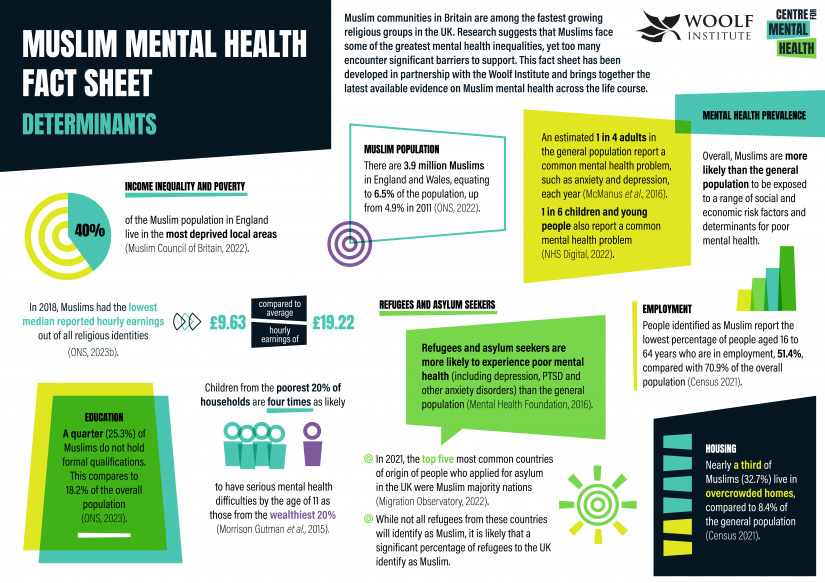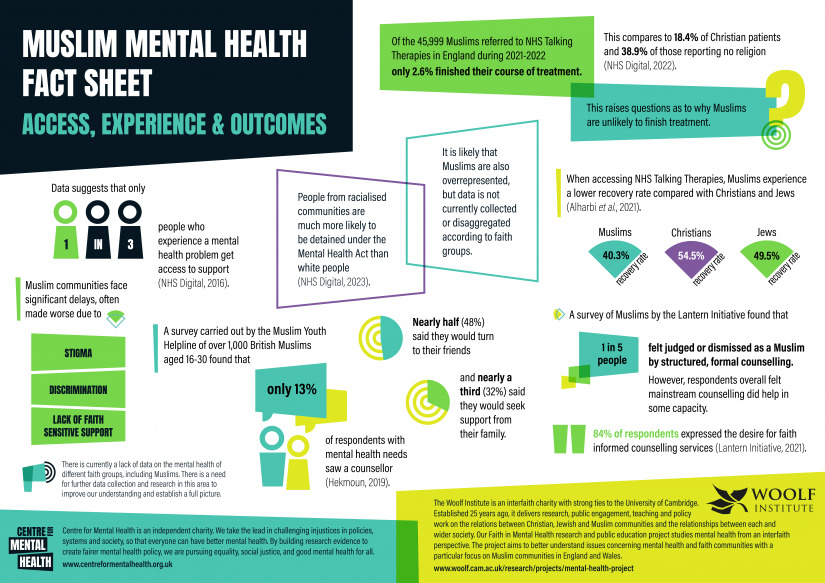Research suggests that Muslims face some of the greatest mental health inequalities, yet too many encounter significant barriers to support.
Muslims are more likely than the general population to be exposed to a range of social and economic risk factors and determinants for poor mental health, including poverty, financial precarity and inadequate housing. 40% of the Muslim population in England live in the most deprived local areas, and a third live in overcrowded homes. When seeking support, Muslims can face stigma, discrimination and a lack of faith-responsive services. Only 2.6% of Muslims referred to NHS Talking Therapies completed their treatment course in 2021-2022. Muslims also experienced lower recovery rates than other religious groups.
This fact sheet, developed in partnership with the Woolf Institute, brings together the latest available evidence on Muslim mental health across the life course. It highlights the urgent need to tackle the stark inequalities in Muslims’ access to, experience of and outcomes from mental health services. This will require the NHS working closely with community groups to roll out more culturally- and faith-informed mental health support, and better data collection to improve our understanding of the challenges and progress in this area.









